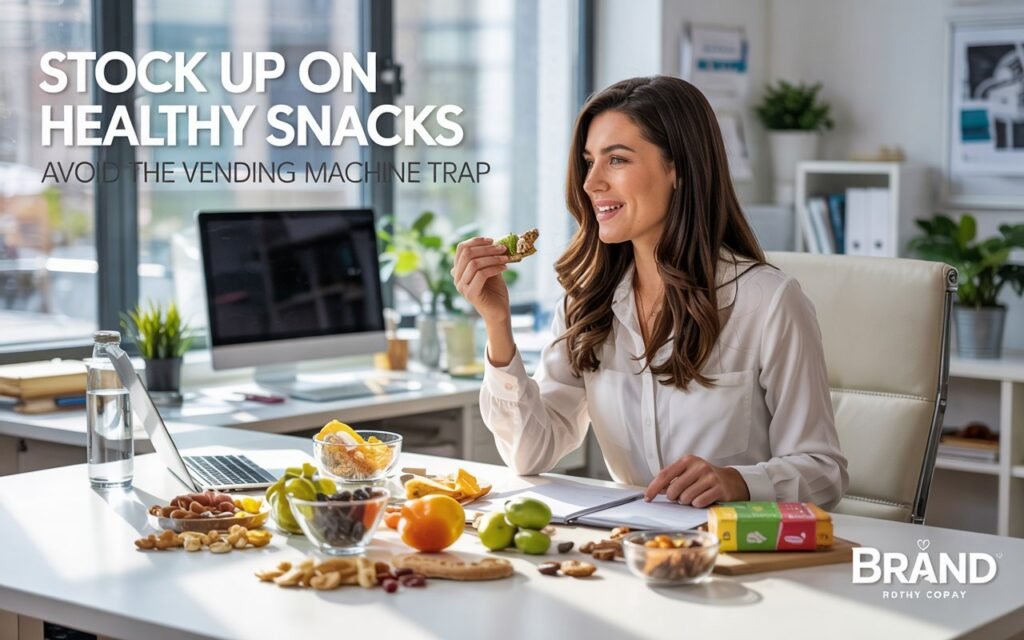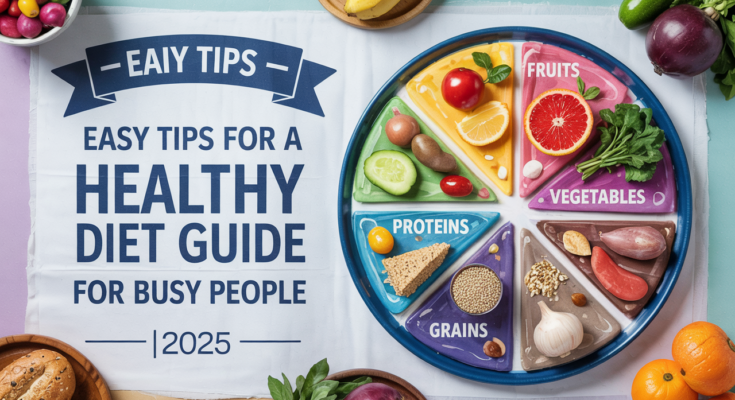Who says you can’t eat healthily on a tight schedule?
Let’s face it, we’ve all been there.
I’m excited to share tailor-made advice,
perfect for busy professionals looking to change their diet.
From planning to plate,
learn how to integrate healthy choices into your packed day seamlessly.
Stay tuned as we break it all down.
Tip 1: Plan Your Meals (The Game-Changer for Busy Schedules)
Why it matters: Without a plan, you’re more likely to grab whatever’s convenient, often unhealthy takeout or processed snacks. Meal planning eliminates guesswork and last-minute stress.
How to do it:
- Spend 15-20 minutes each week sketching out meals.
- Pick simple, repeatable meals (e.g., overnight oats for breakfast, grilled chicken with veggies for dinner).
- Use meal prep apps like Mealime or Paprika to generate quick grocery lists.
Pro Tip: Batch-prep staples (rice, roasted veggies, grilled chicken) to mix and match throughout the week.
Tip 2: Keep Recipes Simple (5 Ingredients or Less)
Why it matters: Complicated recipes with long ingredient lists discourage consistency. The simpler the meal, the more likely you’ll stick with it.
Easy meal ideas:
- Breakfast: Greek yogurt + berries + granola
- Lunch: Pre-made salad greens + canned tuna + avocado
- Dinner: Sheet pan salmon + broccoli + sweet potatoes
Bonus: Fewer ingredients = faster prep, easier cleanup, and less food waste.
Tip 3: Stock Up on Healthy Snacks (Avoid the Vending Machine Trap)
Why it matters: When hunger strikes between meetings or errands, having nutritious snacks on hand prevents energy crashes and junk food binges.
Best grab-and-go options:
- Nuts or trail mix (unsweetened)
- Hard-boiled eggs
- Pre-cut veggies + hummus
- Protein bars (low sugar, high protein)

Pro Tip: Keep snacks in your bag, car, or desk drawer so you’re never stuck with unhealthy choices.
Tip 4: Hydrate Properly (Water Is Your Secret Weapon)
Why it matters: Dehydration causes fatigue, cravings, and poor concentration, making it harder to resist sugary drinks or overeat.
How to drink more water:
- Start your day with a glass of water.
- Carry a reusable bottle (aim for 2- 3 L daily).
- Set phone reminders or use apps like Waterllama.
Warning Signs of Dehydration: Headaches, dry mouth, and feeling sluggish.
Tip 5: Master Smart Grocery Shopping (Save Time & Eat Better)
Why it matters: If your kitchen is stocked with healthy foods, you’ll naturally make better choices.
Shopping hacks:
- Stick to the perimeter (fresh produce, lean proteins, dairy).
- Buy pre-cut veggies & frozen fruits (same nutrition, less prep).
- Order groceries online to avoid impulse buys.
Avoid: Inner aisles filled with processed snacks and sugary cereals.
Tip 6: Cook in Bulk (1 Hour = 5 Meals)
Why it matters: Cooking once and eating multiple times saves weekly hours.
Best bulk-cooked foods:
- Soups & stews
- Grilled chicken or turkey
- Roasted veggies & quinoa
Storage tips:
- Use glass containers for easy reheating.
- Freeze portions for later in the week.
Tip 7: Eat Out Smartly (Yes, You Can Enjoy Restaurants & Stay Healthy)
Why it matters: Busy schedules mean occasional takeout or dining out, but you can still make smart choices.
Healthy ordering tips:
- Choose grilled over fried
- Ask for dressings/sauces on the side
- Skip sugary drinks (opt for water or unsweetened tea)
Avoid: “Healthy-sounding” traps like salads loaded with creamy dressings or oversized portions.
Conclusion
Eating healthy as a busy person isn’t about perfection—it’s about small, sustainable habits. Start with one tip this week (like meal planning or stocking healthy snacks) and build from there. Over time, these strategies will become second nature, helping you feel more energized and in control of your diet.




